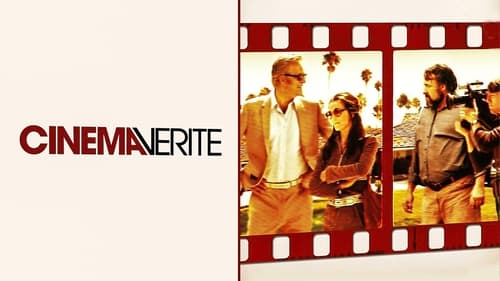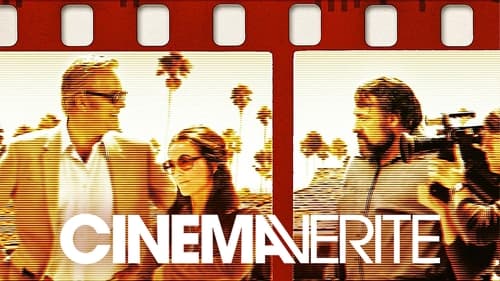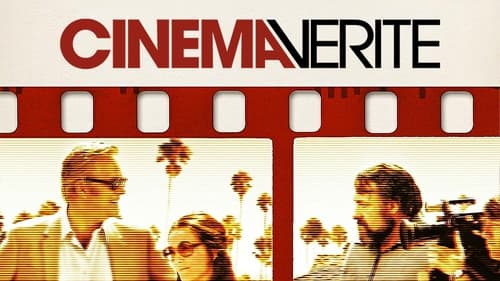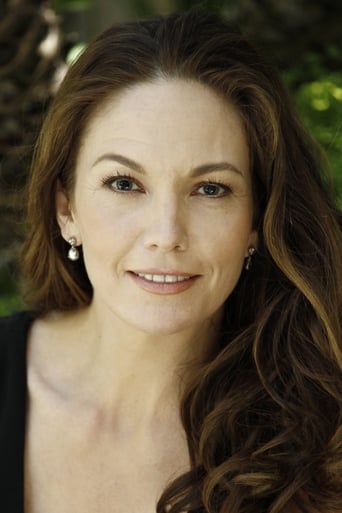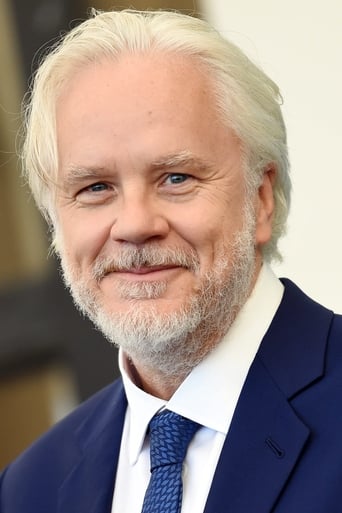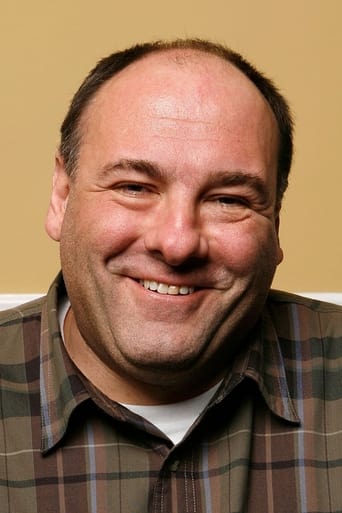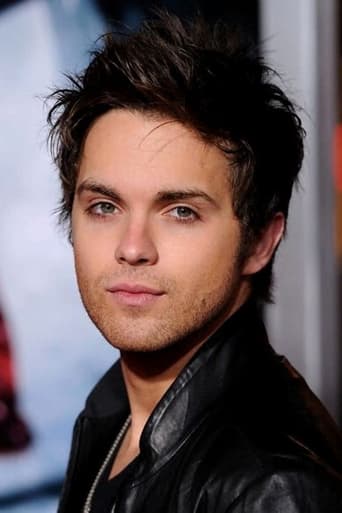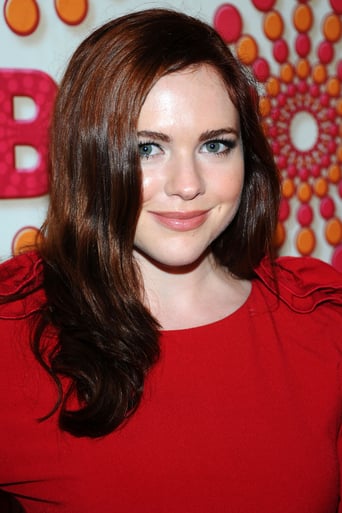CrawlerChunky
In truth, there is barely enough story here to make a film.
InformationRap
This is one of the few movies I've ever seen where the whole audience broke into spontaneous, loud applause a third of the way in.
FirstWitch
A movie that not only functions as a solid scarefest but a razor-sharp satire.
Jonah Abbott
There's no way I can possibly love it entirely but I just think its ridiculously bad, but enjoyable at the same time.
MisterWhiplash
I wasn't born when the Louds became a major deal in the American public consciousness, as the first sort of "reality" family, but that doesn't matter as I should still be able to take this story on its own terms (for example, what if hypothetically it was all made up, how would it work as a story unto itself). Of course the filmmakers are adept at taking real life and spinning it into docudrama - their breakout sensation was an adaptation of the real life guy who made the comic book American Splendor, Harvey Pekar, which included interviews with the real life subjects - so one would expect this to have some authenticity as it's all about the realm of what is real-real and camera-real. One wonders what the Maysles thought of this filmmaker Gilbert.As it stands this man, played here by the late James Gandolfini (in the kind of performance that makes me miss him all the more, it's largely subtle work until the third act), is not exactly Maysles. I don't know how close they got to their subjects like the Beales (this made me think back to Grey Gardens quite a bit, also a "reality" movie in its way), but with the Louds it was the "All-American Family", and the ideal for Gilbert in the early 70's was to document it in an anthropological sense: what if aliens come down, after all, in a thousand years and want to see what we were like? It's easy to piece that together in drama, but then once you get the philosophies of Marshall MacLuhan into the mix, which this seems to also be alluding to throughout in a subtextual way, being 'natural' is difficult... at first.This story of filmmakers following this family - which includes Tim Robbins and Diane Lane as the seemingly happy married couple of a bunch of interesting, happy kids (including one who is gay but quite happy to be in the scenes of Andy Warhol and the Chelsea Hotel and the like) - is certainly gripping for most of its run-time, and gains traction as the drama unfolds for the family. There's infidelity, there's marital strife, and there's Gilbert (usually in the background) with his cameraman and sound recordist in the house getting it all. Sometimes the family doesn't notice they're there. Then they do, and the looks to the camera give it away (maybe my favorite moment is when Robbins, as he's playing the patriarch in an exceedingly tragic and sad moment, gets a foolish grin on his face as he notices the camera as he's getting in his car - it's perfect, it's just how we all would be in that situation, to hide away the pain).All of the actors can't be faulted in the slightest, and along with Gandolfini and Robbins it's hard to note point out Lane giving one of her best performances in recent memory. But there are times when things seem a little rushed... actually, a lot rushed in the final ten minutes or so, when the series finally airs on PBS and the family has to deal with the fallout. I wish we could see more of this, but the whole movie is only 90 minutes, and after giving us sort of a condensed 'greatest hits' of what this family and the filmmakers went through over several months (almost 80 days to be exact, however over much time I don't know), there seems like it's missing things. I wish there was more there there, and that may be a thing of 'no good movie is long enough' but it's more than that - by the time Cinema Verite wraps up what it has to say, and it's here that the Springer and Pulcini combine the dramatized with the actual of the family on Dick Cavette, it feels a little too little too late.What if it had been more like 'Splendor', with combining the dramatized with the actual footage? Maybe HBO only gave them so much time, but it feels off in that way. But what is here is still mostly substantial for drama and pathos, and they even get us to feel for a character as lousy (at least from what we can see) as Mr. Loude, in part due to Robbins but also just solid writing. On the whole a little simplistically drawn, and at the same time in the small moments it carries a lot of worth. And to think how far we've come... or fallen, I should say, with what people will let themselves be seen as in "reality" television.
markgorman
In 1971 an all American family from Santa Barbara in California were chosen, seemingly at random, to take part in a TV experiment. It was to become the world's first reality TV show called "An American Family" and its stars, the Loud family – both by name and at times by nature, were to become national phenomena.But to get to legendary status the show's producer, Craig Gilbert, had a pretty hard sell to the board of TV company PBS who were reluctant, to say the least, to commit to the show and began to baulk at the cost of production as the film stock costs (in particular) began to mount.Their concern was about the "view-ability" of the show and whether it would find an audience. They needn't have worried because what gradually emerged was a tale of a swinging misogynist father (Tim Robbins), a hopeless and helpless (but sultry in Gilbert's opinion) Mom played brilliantly by Diane Lane and a screamingly gay son, Lance, played gleefully by Thomas Dekker. Not to mention a looky-likey Rolling Stones band fronted by the other two boys.But it's what's going on in the mind of Producer Gilbert (played masterfully by James Gandolfini with a very unlikely full beard and absolutely no gangster element whatsoever to draw on) that is the meat of the movie. Well, I say a movie but it's actually a documentary set within a drama, about a reality TV documentary that turns out larger than life than any drama.At points we see side by side comparisons between the "real" family and the 2011 actors. It's uncanny. Gandolfini manipulates all sides as he makes the "action" more and more interesting but in doing so contributes to the family meltdown and the confidence of his crew. It's terrific.I don't think this ever made it to cinema, it's an HBO production, but it's great and I saw it last night on Sky Atlantic so is likely to be repeated at some time. If it is tune in because it's a little gem.
jotix100
PBS was a pioneer in many areas of what is seen in television today. The impact "An American Family" had on our culture cannot be measured; it was something like no American audiences had experienced before. The openness of the Louds being themselves on a weekly basis was revolutionary at best. "Cinema Variete" wants to take today's viewers to the story behind the reality show.The ideal American family was found for producer Craig Gilbert by a friend of the Louds, who thought they would be perfect for what the producer wanted to achieve. Pat and Bill Loud had four children and led a comfortable life in Santa Barbara, California. Pat was a woman that exuded intelligence, as noted during her first encounters with Gilbert. She had her doubts about how the program would play, but evidently she thought it would be a great idea, but little did she suspect how it would change her life, and that of her family. Bill Loud was something else, he was a philandering man if he was given the opportunity to have sex outside the home.The film concentrates on the technical aspects more than in the family members. The only one that is showcased was Lance, a young man obviously in awe of himself and his wit. Santa Barbara was perhaps too provincial for him to express his artistic bent, so he fled to New York where he was able to be what he wanted to be in an open atmosphere, away from his parents and small town gossip. The other kids are not even given a thought in the film, even though they were prominently seen in the weekly programs.Robert Pulcini and Sharon Springer Berman share the directorial credit. The screenplay is by David Seltzer who tried to explain the new phenomenon on public television in a film format. Because of the limitations trying to condense the series into something that resemble a movie, the creators only touch on their subject without going too deep behind the real family.Diane Lane's Pat is one of the best things we have actually seen her do in recent memory. Her resemblance to the real Pat Loud is uncanny. Tim Robbins take on Bill is not quite right, although he also resembled the man he is portraying. James Gandolfini plays Craig Gilbert, a man with a vision that revolutionized the way we watched television shows. Thomas Dekker is seen as the flamboyant Lance Loud.
M. J Arocena
Naturally, it doesn't feel real. The first show of its kind, brought America into a debacle of sorts. Was this an "art form" or a voyeuristic trip into the unknown? Now, the whole thing feels manipulated, fragmented and utterly unreal. The gay son, brought the situation into the main stream but it was misunderstood, or was it? The one thing I got out of this films was a superlative performance by Diane Lane. She is truly extraordinary. But the task of reproducing the "moment" feels a bit all over the place. Going from highlight to highlight, if you didn't know about it you still won't really understand. This is no Truman Show. The dramatic structure seems not merely uncertain but downright opportunistic. Needless to say, I was disappointed.

